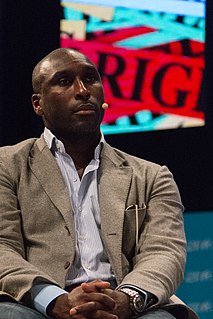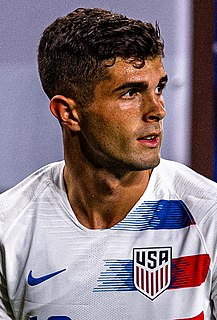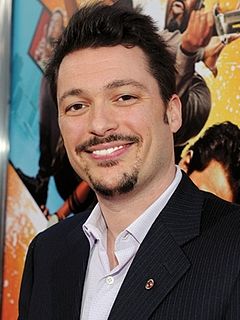A Quote by Kehinde Wiley
There's something really cool about being able to fly to South Africa and watch one of the most talented African footballers wearing a shoe on the field.
Related Quotes
A number of African countries came to us and said, we request that South Africa should not field a candidate, because so many other African countries wanted to, and, in any case, South Africa would continue to play a role in terms of building the African Union, and so on. And they actually said, please don't field a candidate, and we didn't. As I have said, it is not because we didn't have people who are competent to serve in these positions.
When I was in government, the South African economy was growing at 4.5% - 5%. But then came the global financial crisis of 2008/2009, and so the global economy shrunk. That hit South Africa very hard, because then the export markets shrunk, and that includes China, which has become one of the main trade partners with South Africa. Also, the slowdown in the Chinese economy affected South Africa. The result was that during that whole period, South Africa lost something like a million jobs because of external factors.
I started as an engineer. I migrated to philosophy and international politics. And I did my studies about African - Africa democracy and democratization in Africa, taking Kenya as a model. And then, while I was doing so in 1996 in South Africa, Al Jazeera was established. So they requested me to be an analyst on African affairs.
I spent my youth and my most formative years in Africa. I left Africa when I was about 20, 21, and when Mo says a great African, I was really moulded by my African experience, although I had the good fortune that by the time I was 24 I had studied and worked on three continents - Africa, the US, and Europe.
It really does frustrate me when I watch MLS, and I see our best U-17 players - who, again, are so talented and so capable - being rostered... but then not being put on the field much to actually play. I watch that, and I just think about how I was given a chance... a real chance... and it changed my life.
Sport has the power to inspire and unite people. In Africa, soccer enjoys great popularity and has a particular place in the hearts of people. That is why it is so important that the FIFA World Cup will, for the first time ever, be hosted on the African continent in 2010. We feel privileged and humbled that South Africa has been given this singular honour of being the African host country.






































